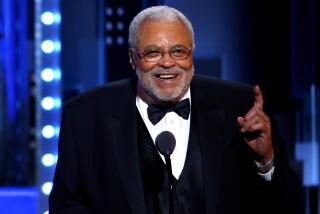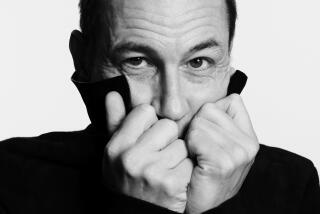Watch Steven Spielberg and Daniel Day-Lewis talk ‘Lincoln’
“He was a great storyteller and a jokester.” That’s how “Lincoln” star Daniel Day-Lewis described the iconic 16th president in a 43-minute Q&A; with director Steven Spielberg that streamed Wednesday night on Yahoo after a special screening of the film in New York. (Watch it above.)
It’s an enjoyable conversation that touches on numerous aspects of Spielberg’s long-awaited “Lincoln,” which focuses on the final four months of the president’s life and his efforts to pass the 13th Amendment, abolishing slavery.
The famously selective Day-Lewis revealed that he initially turned down the role, saying the script didn’t appeal to him.
“It seemed like such a preposterous idea to me, an outlandish idea to take on that work,” Day-Lewis said. “So I fled. I didn’t feel I was capable of doing that work.”
Later, he met again with Spielberg and screenwriter Tony Kushner in Ireland, offered suggestions and “felt the tug” to make the movie.
“After all, what do we have to lose?” Day-Lewis said. “We talk of the danger of taking on a piece of work in a creative field. But the worst thing that can happen is that you become a fool, and that’s a risk that you take pretty much all the time. And it was a very difficult lesson to learn when I was a student because I had a certain sense of dignity and pride. I didn’t like the idea of being foolish, but I learned pretty soon that it was essential to fail and be foolish. And that’s all that we risk in the end.”
One of the evening’s more interesting moments came when Day-Lewis was asked about his high-tenor take on Lincoln’s voice. The question: How do you know that is what Lincoln sounded like?
“Luckily, I don’t. But nor do you,” Day-Lewis said, drawing a huge laugh from the audience. “So we’ll just have to shake hands and agree to differ on that. There are no contemporary recordings. Quite honestly, if I were doing work related to a living being or historical being where there was visual or audio recordings available, I would find that extremely difficult because I don’t know how you would avoid the process of mimicry. And mimicry, to me at any rate, is a very dull prospect.
“A voice is such a deep, personal reflection of character. So I tried as far as possible, and it may be an illusion of some kind, but usually as I begin working, I hear a voice, if I’m lucky, and it’s a voice that’s in my mind’s ear.”
Added Spielberg: “One day I received an envelope with a small tape recorder. And I opened it up, and it was like ‘Mission: Impossible.’ I didn’t know what was going to explode first — the envelope, the tape recorder or me. And I turned on the tape recorder, and I have to say, without hesitation, my eyes welled up. Abraham Lincoln was talking to me on that little tape recorder.”
As for the movie’s contemporary resonance, Spielberg said, “There are certainly parallels because the democratic process was the same in 1865 as it is today in 2012. So there are going to be many honest parallels you can draw on this. We were steeped in this period to tell this part of the story about this great individual, but there are obvious similarities to a country divided, a house divided then and a house divided today.”
“Lincoln” opens in limited release on Nov. 9 and expands nationwide on Nov. 16.
ALSO:
‘Lincoln’ dubbed Steven Spielberg’s best film since ‘War Horse’
David Chase recognizes the value of perspiration in ‘Not Fade Away’
Michael Haneke looks death square in the eye in ‘Amour’
More to Read
From the Oscars to the Emmys.
Get the Envelope newsletter for exclusive awards season coverage, behind-the-scenes stories from the Envelope podcast and columnist Glenn Whipp’s must-read analysis.
You may occasionally receive promotional content from the Los Angeles Times.










